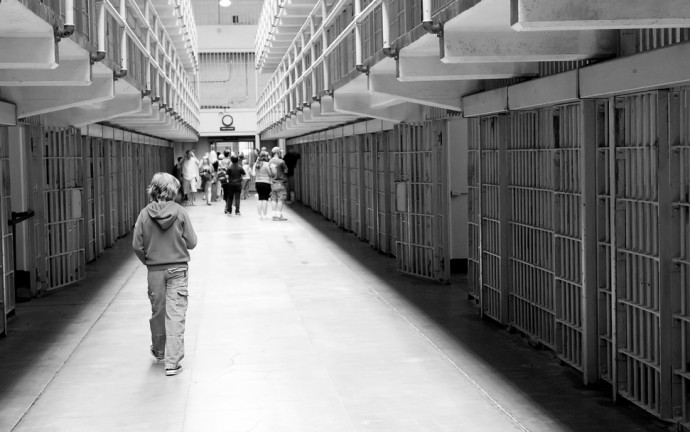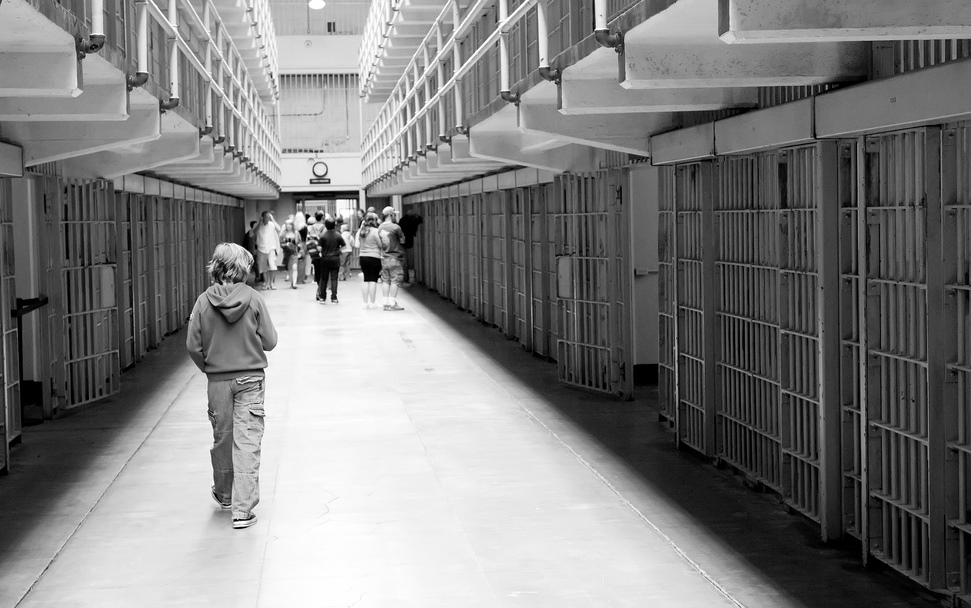
(MintPress)–Across the United States, over 2,500 Americans under the age of 18 have reportedly been sentenced to life without parole for crimes committed during their adolescent years. Despite continuous pressure to comply with international laws forbidding the practice, the United States remains the only country known to actively sentence juveniles to life imprisonment without parole. Some juveniles serving life without parole (JLWOP), were as young as 13 years-old at the time of the crime.
In 2010, the Supreme Court ruled in Graham v. Florida that sentencing juveniles under the age of 18 to life in prison without chance of parole in non-homicidal cases is considered cruel and unusual punishment in violation of the Eighth Amendment.
Next month, the Court will hear two cases to decide whether life without parole constitutes cruel and unusual punishment for juveniles who have committed murder crimes as well. In preparation for the case, over 90 advocates and scholars submitted an amicus brief to the Supreme Court this week on behalf of the offenders. Both offenders in Miller v. Alabama and Jackson v. Arkansas were convicted of capital murder for crimes committed when they were 14 years-old.
.
JLWOP is Against International Law
According to the amicus brief,
“Juvenile offenders are categorically different from adult offenders in constitutionally relevant ways…and they are uniquely capable of transformation and rehabilitation.”
The amici believe that JLWOP violates the Eighth amendment because the reduced culpability of juveniles does not allow for a proportionate and rational sentencing.
Specifically in states where JLWOP is mandatory, the amici believe,
“a mandatory scheme thus precludes constitutionally relevant evidence of youth, lesser criminal involvement, and potential for maturity and therefore impermissibly taints the reliability of the sentence.”
Opponents of JLWOP continue to urge the United States to ratify the UN Convention on the Rights of the Child, which forbids life imprisonment without parole for anyone under the age of 18. The United States and Somalia are the only countries in the world who have not ratified the treaty.
Additionally, opponents of JLWOP urge the United States to comply with the International Covenant on Civil and Political Rights (ICCPR), ratified by the US in 1992, which says that “in the case of juvenile persons, the procedure shall be such as will take account of their age and the desirability of promoting their rehabilitation.”
The ICCPR implies that JLWOP is against international law because it does not allow for the social rehabilitation of adolescents. However, the US ratified the treaty under several reservations making such clauses void in the United States.
The Equal Justice Initiative (EJI), a non-profit providing legal services to JLWOPs, reports that most JLWOPs lived impoverished lives and suffered from severe trauma, abuse, and neglect leading to cognitive underdevelopment, inability to restrain impulses, and lack of maturity. Once incarcerated in adult prisons, JLWOPs suffer even more abuse; EJI reports juveniles are five times more likely to be sexually abused in an adult versus a juvenile prison.
The International Journal on Forensic Mental Health reported that ⅔ of males and ¾ of females in the juvenile justice system show signs of one or more psychiatric disorders. Groups like the EJI and Amnesty International believe that these facts alone are a clear indication of the inhumanity of sentencing adolescents to life imprisonment.
.
Victims’ families say JLWOP is necessary
The National Organization of Victims of Juvenile of Lifers (NOVJL), which formed in response to efforts to overturn juvenile murder sentences, believes that murder victims’ families should be fully included in any cases attempting to abolish JLWOP.
NOVJL agrees with opponents that sentences should be based on an offender’s culpability and that there are several flaws with the current criminal justice sentence. “However, to release hardened criminals who are likely to kill, rape, harm again is not necessary in order to help those few unfairly imprisoned,” says NOVJL.
The NOVJL advocates reforms to prison programming as well as widening options for state sentencing by lessening mandatory JLWOP laws to allow for a more culpable sentence. Yet, NOVJL believes that, “natural life sentences have to be available for those rare cases of criminals who are too dangerous to be allowed to walk among us.”
NOVJL has accused groups like Amnesty International of spreading false statistics about JLWOPs – claiming that there are closer to 1300 JLWOPs and that other countries have much worse punishments for adolescent crimes. NOVJL also claims that human rights groups intentionally use photos of very young children to portray teenage convicts.
Amnesty International believes that the purpose of ending JLWOP sentences
“is not that young people should not be held accountable for their actions. It is that this accountability must be achieved in ways that reflect the offender’s young age and his or her capacity for change.”
The Supreme Court will ultimately decide whether JLWOP will remain constitutionally acceptable in the United States when hearings begin next month in DC.


